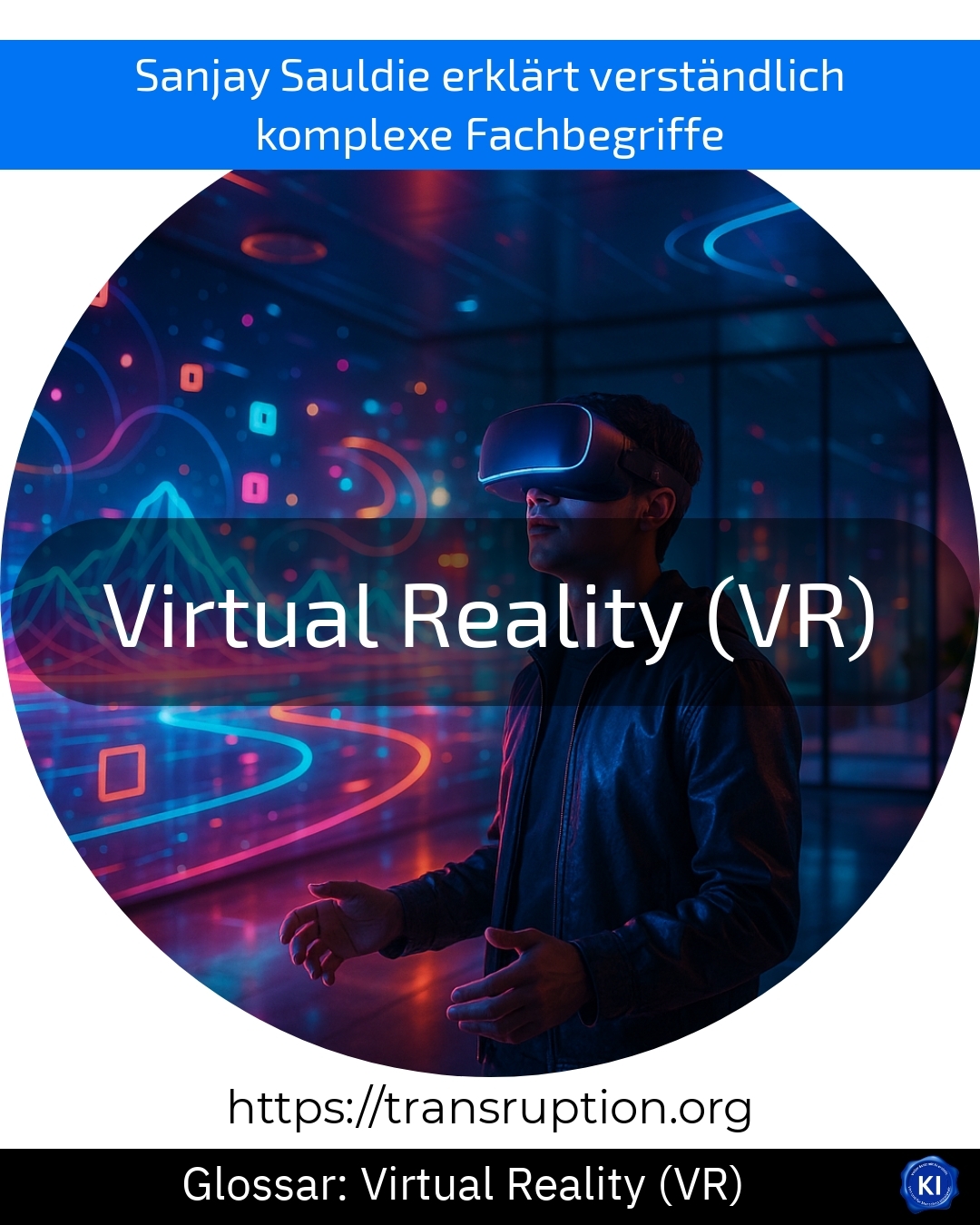Virtual reality (VR) is particularly at home in the areas of "virtual and augmented reality", "digital transformation" and "Industry and Factory 4.0". The term describes a computer-generated environment in which users can completely immerse themselves with the help of special glasses or headsets. Unlike traditional computer games, it feels as if you are right in the middle of the action.
An illustrative example from practice is training in industry: employees can use virtual reality (VR) to practise dangerous work steps without actually putting themselves in danger. This allows processes to be trained safely and realistically. VR is also used in medicine, the property sector and for virtual travel.
The great advantage of virtual reality (VR) is that it takes learning, working and experiencing to a whole new level. Companies can save costs and minimise risks, while users learn interactively and gain experiences that would not be possible with conventional means. VR is constantly evolving and is an important component of digital transformation.















